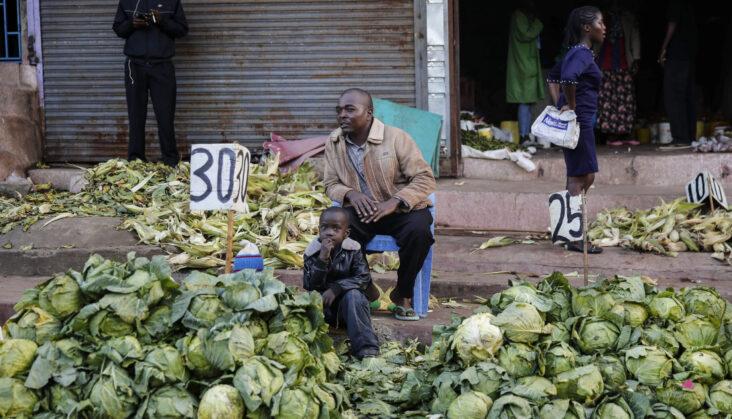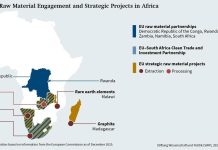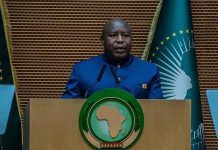Africa-Press – Lesotho. There is no doubt that the coronavirus pandemic will bring about the most significant global economic changes that will be felt for generations.
We see this with every new report of rising fatalities and closing businesses. For most countries, the impact will be severe, but for developing countries – and those in Africa in particular – it could be catastrophic. I welcome the funding efforts that are now gathering momentum to shore up fragile health systems across Africa.
If health sectors in developed countries are buckling under the unbearable weight of COVID-19, one can only imagine the impact on the health sector in certain African countries, in some cases still reeling from the Ebola epidemic.
United Nations Secretary-General Antonio Guterres has described the COVID-19 crisis as the most significant test humanity has faced since World War II.
He called for the creation of a $2bn fund to support the most vulnerable countries during this crisis. But the cost of the coronavirus pandemic on the global economic system will require substantially more.
What developing countries need, in addition to support for their health sectors, is support to keep their economies afloat and protect micro, small and medium-sized enterprises (MSMEs) from going out of business.
For every bankruptcy, closed store, unpicked crop or drop in online orders, people will lose jobs and families will, in many cases, lose their only income.
The International Labour Organization, (ILO), recently predicted that 25 million jobs could be lost worldwide as a result of COVID-19. For Africa – which should be creating 12-15 million jobs annually to keep up with a growing population – these figures could be catastrophic. The global downturn risks putting the continent into a negative, downward spiral.
A number of the exporting companies that my organization, the International Trade Centre, are working with have lost their incomes overnight following a massive drop in demand from European customers.
Take Florencia Blooms, for example, a Kenyan flower grower and exporter ITC works with.
The company is is now only exporting at 30% capacity and is increasingly unable to ship its produce given the air freight disruptions. Worse, COVID-19 has come during the industry’s peak season, aggravating the impact.
As Kenya’s flowers wither, thousands of workers are at risk of losing their jobs. While developed countries have resources to stitch together social safety nets, people or companies in developing countries often have nothing to fall back on when the economy fails.
Africa’s banks will increasingly feel the heat, too, with the possibility that they will be unable to provide the much-needed life-support to MSMEs in the forms of loans, credits and debt relief in the long run, as they, too, may require funding to stay afloat.
While pumping liquidity into banks, as South Africa has done, will temporarily ease some of this pressure, there is only so much that such lifelines can do.
Other measures, such as the suspension of debt-interest payments, called for by African leaders as well as by the IMF and the World Bank, will lessen some of the stress on Africa’s economies.
I join the call on creditors to temporarily waive principal payments for developing countries and the poorest and most vulnerable economies, including highly indebted small island developing states dependent on tourism as their primary (or only) income.
Combined, these measures would provide some relief to African MSMEs, many of which are staring into the abyss. While some will inevitably fail, we must make sure that we save as many as possible. One way to do this is to ensure that investors remain engaged with Africa and African enterprises.
New analysis from the United Nations Conference on Trade and Development suggests that foreign direct investment could drop by 40% this year as a result of the coronavirus pandemic.
For Africa, that drop is likely to be much, much higher. I urge investors – both foreign and domestic – to play their part in ensuring that Africa’s economies stay viable and sustainable.
Now is the time for both the public and private sector to invest in Africa’s MSMEs, help them overcome COVID-19 and help keep the operationalization of the African Continental Free Trade Area (AfCFTA) on track.
And let us not forget that we have to keep markets open for the trading of goods, medicines and hygienic products that will help developing countries arrest the spread of the pandemic. Now is not the time to raise barriers. Trade must continue to function.
I welcome pledges by G7 leaders and G20 trade ministers to keep vital medical supplies and equipment, critical agricultural products, and other essential goods and services flowing across borders.
As Roberto Azevêdo, the Director-General of the World Trade Organization, said: ‘We want manufacturers to be focused on maximizing output, not figuring out how to source domestically, or whether imported materials or components will ever arrive.
’ It has been said repeatedly that we are all in this together and that global problems require global solutions.
Our immediate efforts will rightly centre on supporting fragile health systems. But we must also preserve businesses, jobs and livelihoods. If we allow Africa to fail, we all fail.
For More News And Analysis About Lesotho Follow Africa-Press






